06/20/2012  02:07 AM CDT
02:07 AM CDT
 02:07 AM CDT
02:07 AM CDT
| ||
DOD News Briefing with George Little and
 Capt. Kirby Capt. Kirby from the Pentagon from the Pentagon
GEORGE LITTLE: Good afternoon. As you know from a
 White House announcement that came out a little White House announcement that came out a little  while ago, Secretary Panetta will be leading a presidential while ago, Secretary Panetta will be leading a presidential  delegation to Saudi Arabia to express the condolences of the United States on the passing of the crown delegation to Saudi Arabia to express the condolences of the United States on the passing of the crown prince prince
 The other members of the delegation are listed in the The other members of the delegation are listed in the White House announcement. White House announcement. Before we take your questions, I'd like to provide you a very  brief update on the department's ongoing efforts to improve brief update on the department's ongoing efforts to improve business practices and to reduce overhead in our budget. In particular, I can report that DOD is on business practices and to reduce overhead in our budget. In particular, I can report that DOD is on  target to meet the aggressive efficiency goals set in the fiscal year 2012 budget. DOD components have developed target to meet the aggressive efficiency goals set in the fiscal year 2012 budget. DOD components have developed  implementation plans and have reported to Secretary Panetta that they are meeting their monetary implementation plans and have reported to Secretary Panetta that they are meeting their monetary targets. The FY '12 savings will total $19.8 billion, part of $150 billion in efficiencies targets. The FY '12 savings will total $19.8 billion, part of $150 billion in efficiencies  proposed for fiscal years '12 through '16 in the FY '12 budget. As you'll recall, earlier this year the secretary announced an additional $60 billion in efficiencies between fiscal year '13 and '17. The department is currently developing implementation plans to reach those goals, and we are confident they can be realized. proposed for fiscal years '12 through '16 in the FY '12 budget. As you'll recall, earlier this year the secretary announced an additional $60 billion in efficiencies between fiscal year '13 and '17. The department is currently developing implementation plans to reach those goals, and we are confident they can be realized.
llmalehideaway: The Amazing WOOD at Pantheon
 involved in the efficiencies effort. This is consistent with his focus on more discipline in involved in the efficiencies effort. This is consistent with his focus on more discipline in business operations to include audit readiness and improved internal business operations to include audit readiness and improved internal  controls. We've made specific changes in controls. We've made specific changes in business practices that are saving business practices that are saving  money. There are over a hundred -- excuse me, 300 separate efficiency money. There are over a hundred -- excuse me, 300 separate efficiency initiatives, and let me just give you a few initiatives, and let me just give you a few examples. And remember that pennies and nickels and dimes add up to a lot of money in this examples. And remember that pennies and nickels and dimes add up to a lot of money in this  department. department. First, streamlining the Office of the Secretary of Defense, the comptroller has eliminated duplicative financial reporting functions, and our CIO reduced reliance on service support contractors as part of an estimated FY '12 savings of $17 million. The Air Force now uses commercial flight-planning software to make real-time flight adjustments, for an estimated FY '12 savings of $45 million. The Navy is consolidating wireless contracts to leverage buying power and make best use of minutes, for an estimated FY '12 savings of $10 million. The Army is streamlining installation management and decreasing the number of regional headquarters from six to four, for an estimated FY '12 savings of $9 million. And lastly, we have completed elimination of Joint Forces Command last September, for an estimated FY '12 savings of $292 million. With that, we'll go ahead and take your questions. They all go to John today. (Laughter.) Lita. Q: OK. Captain Kirby -- (laughter) -- just on some of the attacks in Afghanistan, first, have you all been able to verify whether or not the attack yesterday was indeed a green-on-blue attack? And is there any suspected connection between that one and another one where it sounded like there also were insurgents dressed in police uniforms later on -- later on in the day, earlier today? And then just sort of overall, can you address the spike in attacks in southern Afghanistan and what you think that that signals? CAPTAIN JOHN KIRBY: Yeah, clearly a tough day in Kandahar, or last couple of days. There's no question about that. I don't have any more specific information about yesterday's attack. We still believe and it still appears to be what we consider a green-on-blue, an insider threat attack. And right now the number that we're dealing with is three, three attackers that were dressed in Afghan national security force uniforms. And I don't know any more detail than that, whether it was police uniforms or army uniforms, but ANSF uniforms. And those three are still at large. Then we had two others in the intervening hours between last night and now. In one of them, we do believe that it was at least facilitated -- potentially facilitated by an individual dressed in an ANP, police -- Afghan National Police uniform. But again, details are very sketchy right now. ISAF is certainly looking into this. But it's just too soon to say with any certainty the degree to which any of these are connected. They were all in the south, in Kandahar, or around Kandahar, I should say. But it's too soon to say that they were connected. And as for the -- as for the -- I think you described it, a spike, I mean, yesterday was -- and today, tough day. There's no question about that. And it's not uncommon that in the warm months of the year, violence will increase there in Afghanistan. Part of that is because of the weather. Part of it is because ISAF and coalition forces are being more aggressive. They're out and about much more, particularly in the south. So there -- they have occasion to be in more contact with or more of a problem for the enemy and therefore eliciting some of these attacks. But again, that's something that we take very, very seriously, and ISAF is looking into it. Q: May I follow upon that? CAPT. KIRBY: Sure. Q: Can you tell us what you know -- two questions -- what you know specifically about the attack earlier today at FOB Frontenac and the breach on this U.S. base? And then I have a Syria question, if I might. CAPT. KIRBY: OK. Well, I don't want to get into -- again, it's very early on. So I don't want to get into too much detail here. But on -- at FOB Frontenac, it does appear that some insurgents dressed in ANSF uniforms were able to breach the perimeter of the operating base and were engaged very quickly by friendly forces inside, by coalition forces. There was a quick response force that -- from a nearby combat outpost that responded almost immediately, and of course all the casualties were evacuated to Kandahar Airfield. We -- right now we believe in that particular attack that there were no U.S. forces killed, but there were several wounded -- less than 10 wounded. And we do believe that we -- that the friendly forces were able to kill seven to eight insurgents. So that's what I know right now. But again -- and you guys know this well -- the numbers will change, the facts may change as we gather more information. All this happened very recently. Q: So when you say QRF, you brought in helicopter support? CAPT. KIRBY: I don't have the level of detail. All I can tell you is that a quick reaction force did respond from a nearby outpost. Q: Can I just very briefly ask about Russia and Syria? With the Russians now turning around the ship that had its insurance canceled, what is your latest assessment of what you believe Russian military intentions are with all of these ships and movements that are now being watched -- (inaudible)? CAPT. KIRBY: Well, as you know, there have been reports that the Russian military is preparing to dispatch some vessels -- we think it's about three -- with supplies and perhaps personnel, to their base there at Tartus. We have no indication that these vessels and that material is being sent to Syria for any other purpose than that which the Russian military has acknowledged themself, that it's for resupply and to help with force protection needs they have there at that facility. It's -- Russian citizens have been threatened there in Syria, and they're in -- their stated intention is that this is for force protection reasons for -- of their own. That's what -- that's what we -- that's what we believe to be the case. Q: Three ships separate from the helicopter ship? CAPT. KIRBY: That's correct. Q: (Inaudible) -- CAPT. KIRBY: That's our understanding. But, again, as I said before, I would encourage you to speak to the Russian Ministry of Defense. Q: But have they left? Q: I would like -- CAPT. KIRBY: I'm not going to get into describing their naval movements. That's really for the Russian government. We understand that they are preparing to dispatch a small number of naval vessels for -- to go to provide some resupply and force protection purposes there at their base in Tartus. Q: (Inaudible) -- Q: How many troops on board? CAPT. KIRBY: I don't know. I don't know. Q: Can I follow up? Q: (Inaudible) -- Q: Were the helicopters that were on board this ship that turned around -- were they, according to your information, going to be used against the civilian population of Syria? And will you stop future arms shipments from Russia? CAPT. KIRBY: Again, I would refer you to the Russian government themselves who said that this was part of a long-standing contract that they had with the government of Syria to provide helicopters to the Syrian military. As we've said here before, any external support given to the Assad regime of a military, lethal nature that they would -- they -- that could allow them to harm their own people is intolerable and unacceptable. We've made that very clear. We -- and we continue to be concerned about any support that the Assad regime would be getting from outside countries or outside forces to allow them to continue to kill their own citizens. Q: (Off mic) -- stop future shipments? CAPT. KIRBY: I'm not going to get into hypotheticals. Q: Well, what is -- what is the U.S. reaction to the fact that this one shipment has turned back? CAPT. KIRBY: Well, it appears as if it is no longer going to complete this journey. And we certainly -- we certainly support that decision and, again, don't want to see the Assad regime get arms and ammunition or any lethal support that they could use. Q: Can you characterize the depth of the conversations with the Russian military, given that the government's position is, we don't do arms embargoes; we don't do blockades; we will block such action at the Security Council? CAPT. KIRBY: I don't think it's in anybody's interest right now to try to raise the rhetoric and take a bellicose sort of demeanor towards the international pressure that's being applied or needs to be applied to Syria. I think -- and you saw this yesterday -- the -- when President Obama met with President Putin, they both agreed that a political transition is the best outcome for Syria. And I think we're all in agreement that that's the right way forward. And we don't agree with the Russians about everything. That's true. But I think we can all agree that that's the right answer for Syria and for the Syrian people. And I don't think it suits anybody in -- to getting into any kind of a finger-pointing game here at this point in time. What needs to happen is the diplomatic and economic pressure continues and needs to continue to be applied to the Assad regime so that they will step down and do what's right for their own people. Q: But the Russians have argued that continuing these arms sales is in the Russians' economic best interest. But isn't there a larger moral question here of their possibly supporting the Assad regime if more helicopters go in, if more weapons go in, if personnel go in, you know, as a show of support? You know, why isn't that conversation happening? CAPT. KIRBY: I think we've been very clear with the entire international community, not just the Russians, about what our concerns are with respect to lethal aid and assistance going to the Assad regime. I think we've been exceedingly clear about that. Q: Did the U.S. play any role in the lifting of the insurance on this vessel, for instance, urging the (Brits ?)? CAPT. KIRBY: I have no knowledge of any involvement that we had in that. Q: (Off mic) -- on Syria too. MR. LITTLE: OK, Joe (ph). Q: I think this question has been asked before, but ask one more time. Do you know if this department has received any requests from the White House to work on a plan just to -- in case of a military intervention in Syria or to secure some humanitarian routes on the border with Turkey? Do you have any idea if any request has been sent or if the J-3 is working on something regarding -- on that? CAPT. KIRBY: I'm not aware of any specific request of that kind, Joe (ph). And again, we owe -- that -- what we do here is create options for the president of the United States across a broad range of military capabilities. And I'm not going to get into the specifics of the kind of thinking that's going on here or has gone on here at the Pentagon, but I'm not aware of any request like -- that nature. And there is certainly no movement here at the Pentagon to create that kind of an opportunity. Q: Just a quick follow-up. Do you think -- do you know if the United States Navy has the intention to deploy any naval ships -- (inaudible) -- to Syria in the Mediterranean? CAPT. KIRBY: We have -- we have American Navy ships in the Mediterranean virtually year-round. And there are -- there is a naval presence there right now. It changes; it comes and goes, but -- depending on requirements for -- from the combatant commanders there and in other regions of the world. I don't know the exact figure. I'm sure the Navy can get you that. But the -- I can tell you -- what I can tell you is our presence there in the Med, whatever it is today, is routine. And it's based on current requirements set by the European Command and the European Command commander. Q: (Off mic.) The Senate Foreign Relations Committee has released a report saying that upwards of 15,000 U.S. forces are currently in Kuwait. The number is expected to drop slightly to about 13,5(00). Why so many troops, when it was our understanding that as recently as six months ago there were only about 4,000 or so troops permanently based in Kuwait? Is this a training mission? Is this a show of force to Iran? Is this a contingency forward-leaning force for other crises in the region? CAPT. KIRBY: We're aware of their report. This is dated today, so I don't believe we've had a chance to peruse it with any -- in any detail. But look, without getting into specific numbers in any one country there, there's roughly 40,000 or so American troops in and around the Central Command area of responsibility. As I said, with the Navy that number does fluctuate from time to time. You would expect it to. But it is -- it's a long-standing presence that we've -- that we've maintained there. We'll continue to maintain. The secretary has been very clear that -- while we do this shift in focus to the Asia-Pacific, that the Central Command area responsibility will still remain a high priority. It does. And those troops perform a variety of missions throughout the region, to include training, advising, assisting, and also to help act -- I think the chairman addressed this this morning -- as a deterrent against potential enemy activity in the region. Q: So you're saying -- I mean, there have been 15,000 troops in Kuwait since last year, and at the time I think it was -- we were told that that number would be coming down, that there was a brigade there temporarily. But it sounds like it's not coming down. Is that -- is that fair to say? CAPT. KIRBY: I'm not going to get into the specific numbers of troops we have in any one country in that part of the world. The basic force presence remains the same, at about 40,000. It has not changed dramatically in recent months. And again, there's a variety of missions we conduct there, and we do it -- and I would remind you -- at the invitation of the host nations there in that part of the world. Q: But the other thing we were told when this came up the last time was that the Kuwaitis had not signed off on that large a presence in their country as of that time. Have they now -- are they now -- have they -- is there an agreement between the U.S. and Kuwaitis? CAPT. KIRBY: Again, without getting into the specifies cited in this report -- which we haven't had a chance to completely read yet -- we are -- we are there largely -- completely at the invitation of host nation governments. And whatever the presence is in whatever part of the region we're talking about, it's there with the consent and the full consultation of the host nation government. Q: Can you say whether the 2001 SOFA allowed for this number to be -- (word inaudible)? CAPT. KIRBY: I'm not an expert on the 2001 SOFA. I'd -- we'd have to get back to you on that. MR. LITTLE: Do we have some other folks -- (inaudible)? Q: On the same subject, is it fair to say that Kuwait's importance as a military platform has increased with the end of the Iraq war? MR. LITTLE: I think that -- CAPT. KIRBY: That -- go ahead. MR. LITTLE: -- Kuwait's been an important military partner of the United States for years, so I wouldn't -- and that's remained steady. Our relationship with Kuwait is very important. Our relationship with other countries in the region is extremely important. So that's how I would answer the question, Spence. We're going to remain focused on that partnership. The Kuwaitis remain vital to us, and we'll continue that -- to nurture our ties. Q: And can I -- can I just ask another one real quick? MR. LITTLE: (Inaudible.) Q: Can you confirm that General Caldwell is under investigation for obstructing an inquiry into an Afghanistan military hospital? MR. LITTLE: We're aware of the Wall Street Journal report. It's our understanding that this matter is looked at -- is being looked at by the DOD-I chief for possible review. I would note that strong action was taken at the time, separate and apart from any possible investigation that may or may not occur, that strong action was taken at the time with respect to the hospital in question. Senior military officers, I believe to include General Caldwell, made known to the Afghan Ministry of Defense our concerns about the hospital. And changes in personnel and, I believe, in practices were also made. Beyond that, I can't really comment given the fact that -- Q: (Off mic.) MR. LITTLE: I'm unaware that they were known prior to his most recent assignment. Q: George, when will there -- MR. LITTLE: (Inaudible). Q: Two questions, Afghanistan and India. MR. LITTLE: All right. Q: First of all, how was the trip to India? Secretary was recently in India. One, if India's mission changes because of secretary's recent visit to India as far as -- in Afghanistan? India's presence in Afghanistan will change now, or will it remain the same, or if secretary has asked India to do more in -- as far as security in Afghanistan is concerned? And secondly, as far as security in Afghanistan is concerned, do you still believe that in the south that al-Qaidas are still there and there is still problem and they are still waiting when U.S. and NATO leaves the area and then they will be ready to move in? MR. LITTLE: Who will be ready to move in? Q: Al-Qaida, in south. MR. LITTLE: Al-Qaida. OK. Well, a two-parter there. First, on India, India is a pivotal player in the region, obviously. They're a very important strategic partner of the United States, and the secretary expressed his gratitude to the Indian government for their willingness to help train the ANSF. And he did encourage the Indian government to continue that effort and even to expand it. So we think that's a very important step for the Indians to consider as part of their role in fostering greater peace and security in the region, to include in Afghanistan. With respect to al-Qaida in Afghanistan and their ability to be resilient, as we transition to a new phase in our relationship with Afghanistan, we believe that the Afghans themselves, working with ISAF countries that could maintain a presence beyond 2014, are going to be able to effectively suppress this threat. Al-Qaida should take no comfort in 2014 as an end date for the Lisbon transition. That will be a continuing priority and focus of the United States and our allies, to include Afghanistan. They will continue to see pressure brought to bear against them. That pressure is happening now, and it will continue in the future. John (sp). Q: Sir, can we get an Egypt question in? Have you any contact beyond the statement yesterday with your counterparts there, including any discussion about ending some of the collaboration that you've detailed was, you know, ongoing in your statement yesterday? MR. LITTLE: We have, as a government, continued dialogue with the Egyptians. I don't have any new updates to offer. Q: Is the -- MR. LITTLE: We'll come back to you, John (sp). (Laughter.) Q: Is the court ruling in Pakistan going to make it more difficult to get a resolution of the GLOC situation -- (off mic)? MR. LITTLE: I'm not in a position to make a connection one way or the other between the Supreme Court ruling in Pakistan and resolution of the GLOC issue. Our position on the GLOCs remains where it's been for some time. We remain hopeful that they can be reopened in the very near future. Our dialogue with the Pakistanis continues. I wouldn't attribute any shift in our course based on today's ruling. John (sp). Q: That answered my question. MR. LITTLE: OK. All right. Thank you, David. All right. Larry. Q: Back to the issue of Russia, have any Russian military or political leaders communicated to this department in any way any kind of threats that the Northern Distribution Network might not flow as smoothly as it is now if we push too hard on their assistance to Syria? And if not, are you concerned that they might do that if you do, like, stop ships from going into Tartus? MR. LITTLE: Thanks for the question, Larry. It's a good one. I'm unaware of any such communication by the Russians. We're grateful for their support of the Northern Distribution Network, which I think I've described as a ground rule of military logistics in the past. It's an extremely complicated but essential network for our supplies in and out of Afghanistan. I have heard no indication that the Russians are going to change their participation in that network and would reiterate our thanks to the government of Russia for supporting it. CAPT. KIRBY: At the same time, we've been very clear with them about our concerns about lethal support to the Syrian regime. I mean, so it's -- I mean, we -- it's not like we haven't been honest about what concerns us with these arms sales to Assad. We have been. Q: Can I follow up on that? You -- earlier you called any arms sales to the Assad regime intolerable to the U.S. CAPT. KIRBY: Yeah. Q: Has that been communicated directly to the Russians? CAPT. KIRBY: I think that's the position of the international community, not just the United States. Q: Yeah, but for the U.S. to say it's intolerable implies there would be some sort of reaction if one of these -- CAPT. KIRBY: I'm not going to -- you know, look, it's a statement of fact that arms sales to support the Assad regime are unacceptable. But I wouldn't -- I'm not, certainly from here, going to go into hypothetical scenarios here. I mean, we're working with the international community as much and as aggressively as we can to make sure that Assad doesn't have at his disposal the means to kill his own people, or at least limit that ability as much as we can. Q: If outside weapons began going to the Assad regime, would the U.S. reconsider its current opposition to giving arms to the -- to the rebels? CAPT. KIRBY: I'm not going to get into a hypothetical, David. Q: (Off mic.) CAPT. KIRBY: It is. It is. MR. LITTLE: It is a hypothetical. CAPT. KIRBY: It's exactly a hypothetical. Q: Did Mr. Putin agree to stop arming Syria? CAPT. KIRBY: I'm sorry? Q: Did Mr. Putin agree yesterday to stop arming Syria? CAPT. KIRBY: You'd have to talk to White House about the conversation with the president. MR. LITTLE: You'd have to go to the White House -- (inaudible) -- the conversation. Q: (Off mic) -- secretary had any conversations with his counterpart -- Russian counterpart in the past several days -- (inaudible)? MR. LITTLE: No. Q: Can I ask one on Afghanistan? MR. LITTLE: Sure. Q: Kirby, you mentioned at the top that there were -- there was the green-on-blue yesterday, and then there were two other incidents of green on blue. What was the -- (inaudible) -- CAPT. KIRBY: There was another -- there was another attack on a -- on a Kandahar reserve facility, not -- it's not an ISAF facility; it's an Afghan reserve facility there in Kandahar. There were no ISAF casualties, but the Afghan uniformed police did take a number of casualties in that attack, and I don't have much detail on that. Q: Follow-up? Q: And that was today as well? CAPT. KIRBY: Yes, that's my -- Q: (Inaudible) -- a green-on-blue or is it -- (inaudible) -- CAPT. KIRBY: I don't know. I don't have -- I can't characterize that one as a green-on-blue. I don't have a lot of detail on that one. Again, you should go to ISAF for that. MR. LITTLE: OK, let's just forget the -- (inaudible). Tom? Q: On that, a clarification and a policy question: Earlier you said that -- regarding Frontenac, that there were insurgents in ANSF uniforms, and does that imply that they were ANSF -- vetted, accepted -- who were really insurgents or were they insurgents who somehow had gotten a hold of uniforms? CAPT. KIRBY: Very difficult to know, Tom. As you know with the insider threat and those kinds of attacks, it's very difficult to understand complete motivation, and I don't think we're at any point right now where we could really answer that question. Q: OK, fair enough. Policy question then, and not a hypothetical -- the withdrawal, as with redeployments, are always conditions-based. Does General Allen have the right to slow the redeployment out of Afghanistan should he feel that keeping the forces on the ground are important to protecting American troops? CAPT. KIRBY: Well, as you know, General Allen -- first of all, we're on track, and we will complete the withdrawal of the surge -- the rest of the surge forces by the end of September. After that, General Allen will do an analysis of what the campaign looks like then, at the end of '12, and what he anticipates the needs and requirements will be going into '13. He simply can't do that spadework right now while we're in the middle of the summer, and he still has those 23,000 at his disposal. And he owes the president an analysis and some thoughts about what force levels need to look like going into next year, and we just -- we're not at the stage right now where he can make that determination. This will be a discussion that he has with his military chain of command and with the civilian chain of command, and decisions will be, you know, forthcoming as a result of that conversation. Q: For the recovery of the surge forces, what you just said is indeed policy. General Allen said that here. But can he slow the recovery itself should he feel that security -- CAPT. KIRBY: Of the -- Q: The surge. CAPT. KIRBY: Oh, I'm sorry. I misunderstood your question. His mandate is to withdraw the 23,000 surge -- remaining surge forces by the end of September. How he gets to that point is up to him. He can control the pace of the recovery of those troops as long as they're out by the end of September. Sorry, I didn't -- I misunderstood your question. MR. LITTLE: OK, yeah. Carl (sp). Q: (Off mic.) MR. LITTLE: OK, and then we're at the -- Q: You mentioned at the beginning about three Russian naval ships that you know of that are preparing to leave. CAPT. KIRBY: Right. Q: There have been reports in the media about two. This third one is not the one that was up near Scotland, the cargo ship with the helicopter, is that correct? CAPT. KIRBY: Right. Q: Are they all coming out of the Black Sea? CAPT. KIRBY: I don't -- Q: (Off mic) -- or are they -- one coming from a different part of Russia? CAPT. KIRBY: I don't know. We're -- all of them are home- ported, but we're aware that there are three naval vessels -- this is in addition to the cargo one that we talked about with the helicopters on board it. And again, we've had no indication that -- first of all, that -- we don't know -- we don't have complete knowledge of the mission intended, but we have no indication that it's anything other than what the Russian Ministry of Defense has stated themselves, that this is for resupply of their base and for force protection purposes. MR. LITTLE: Carl (sp). Q: George, the Israeli vice prime minister, Shaul Mofaz, is in Washington today. Does he have any meetings in the building while he's in town? MR. LITTLE: Good question. I'm not aware of any meetings that he's having inside the Pentagon. As you know, President Peres was here last week, but I'm not aware of any meetings. If that changes, I will let you know. OK? Thank you. CAPT. KIRBY: Julian. Q: What is the department's policy about when it will release the size of a U.S. presence in an individual country? I mean, you routinely release what's in -- you did what was in Iraq and you do what is in Afghanistan. It seems like, you know, 13,000 or 10,000, a substantial force, in Kuwait, and there would be a public interest in knowing precisely. Is it a -- what are the rules about when you release a -- information about force size in a particular country? MR. LITTLE: There are a number of factors, Julian, that go into determinations that we make about a range of issues that we discuss publicly. And you know, I'm not sure there's a one-size-fits-all solution for every single country. There are numerous factors to weigh in. And you know, bear in mind that when it comes to very specific figures, as we implement this new defense strategy, that we're talking about rotational presences in various parts of the world. So fixed numbers may not tell the entire story. Just bear that in mind. So we're going to have to work through that. A range of factors contribute to the decisions we make about how we describe our presence in various parts of the world. Q: And you -- there's the whole back-and-forth about the 22,000 leaving Afghanistan. I mean, you recognize that you're so open about numbers in some countries, and then someplace like Kuwait, which is an ally of the United States -- there's no real security concern for troops there -- it seems -- it's just so incongruous that we can't get the number of troops in Kuwait. And we can find out how many troops are in the Horn of Africa right now, and that's -- there's covert missions going on there. And do you recognize, though, it's so incongruous for us to hear this? (Chuckles.) CAPT. KIRBY: Well, look, it was said from the top that we're there often -- well, we're there at the consent and with consultation with the host nation. And sometimes there are sensitivities that we share with the host nation themselves about how much we're going to release about what the presence is there. I mean it's -- you know, it's part and parcel of being a partner and a friend in a particular part of the world. And working through -- working through -- no, it's not about not discussing the truth: It's about -- it's about knowing where the limits are and the comfort level of the host nation that is permitting your presence there. MR. LITTLE: Let's see here. Yes. And we're going to wrap it up in a couple of minutes. Q: Yeah. Thank you. Secretary -- (inaudible) -- trip to India this month. It was agreed that he was -- (inaudible) -- mission to India -- (inaudible) -- service members who died during plane crash in the World War II. Do you know when this mission -- (inaudible) -- and how many people died, how many U.S. servicemen died in that part of the world? MR. LITTLE: The mission has not yet started. I don't have the precise date that the mission will begin, but it's, I think, several hundred service members who are thought to have been lost in northeast India. We're grateful to the government of India for allowing us to kind of restart this remains recovery effort. It's very important. OK, yes, and then Mike and then we'll close it out. Q: (Off mic) -- that China and North Korea are now under joint military exercises. And China has mentioned this exercise is to protect North Korea as a -- (inaudible). What is your comment on this? CAPT. KIRBY: This is a -- it's a single-day exercise. MR. LITTLE: Single-day exercise, yeah. CAPT. KIRBY: Hasn't started yet. It's later this week. It's an annual exercise the Republic of Korea conducts every year. And we're going to be participating with them this year. As I understand it, it's the first time that we have participated in this annual exercise. But it's a one-day exercise. It's not a threat to anybody. It's just a chance for the -- for the South Korean military to improve their capabilities. And we're looking forward to participating with them. MR. LITTLE: Last question, Mike, or -- sorry -- you had a follow-up? Q: Yeah. Q: Is there any indication -- MR. LITTLE: Go ahead. Q: This is trilateral military exercise between -- CAPT. KIRBY: I'm sorry? Q: This U.S. and Japan and South Korea -- CAPT. KIRBY: Oh, you're talking about the one at sea. Q: Yes. CAPT. KIRBY: I thought you were talking about the one later this week with the -- there is a -- there is a naval exercise that -- Admiral Locklear talked about it from the podium earlier this week -- that we are conducting this week. That is trilateral. That is with the Japanese Self-Defense Force, South Korean military and the United States, yes. But again, I mean, look, one of the things we talked about is the need not just for good bilateral relationships in that part of the world but multilateral. And this is a very strong trilateral relationship we enjoy with those two countries. And we're going to continue to look for opportunities to improve interoperability between us. Sorry, I misunderstood which one you were talking about. But there is another one later this week, one day, that the -- that the republic does every year. MR. LITTLE: And Mike. Q: Is there any indication yet how much longer General Allen will stay in Afghanistan? MR. LITTLE: We have no announcements to make about any kind of future transition in Afghanistan. He's focused on fighting the fight. He's doing it extremely well. He's the right leader at the right time for this effort. The secretary has full confidence in what he's doing. You've heard the secretary say on repeated occasion that he's performing in an outstanding manner. And we look forward to him serving in this role, and when the time comes, in serving potentially in other roles. Q: (Off mic) -- the country -- (inaudible). MR. LITTLE: OK. All right. (Chuckles.) So you share my view. (Chuckles.) Q: (Inaudible.) The question, the reason, the question is that very often, as it was with his predecessor, General Petraeus, who perhaps -- (inaudible) -- expected he would stay there longer than he did, he was moved because there were promotion (things ?) coming up through the channels, so I just want to -- we know there are promotion vacancies coming up that General Allen might fit. So I wonder whether there is any sort of pressure on that -- (inaudible)? MR. LITTLE: No, the only promotion I'm willing to confirm is Captain Kirby's. OK, all right. Q: (Off mic.) MR. LITTLE: (Inaudible) -- I think it's pretty much in train, right? CAPT. KIRBY: Yeah. MR. LITTLE: OK. CAPT. KIRBY: August 1st. MR. LITTLE: If it wasn't before, it is now. CAPT. KIRBY: (Chuckles.) MR. LITTLE: And -- Q: (Off mic.) (Laughter.) CAPT. KIRBY: Lucky for me, I did not have to go through a hearing. MR. LITTLE: Mike, I'm just very pleased you didn't ask a question about the War of 1812. OK, all right. All right. (Chuckles.) Thank you all very much. | |
 Media Operations Capt. John Kirby
Media Operations Capt. John Kirby








Nenhum comentário:
Postar um comentário